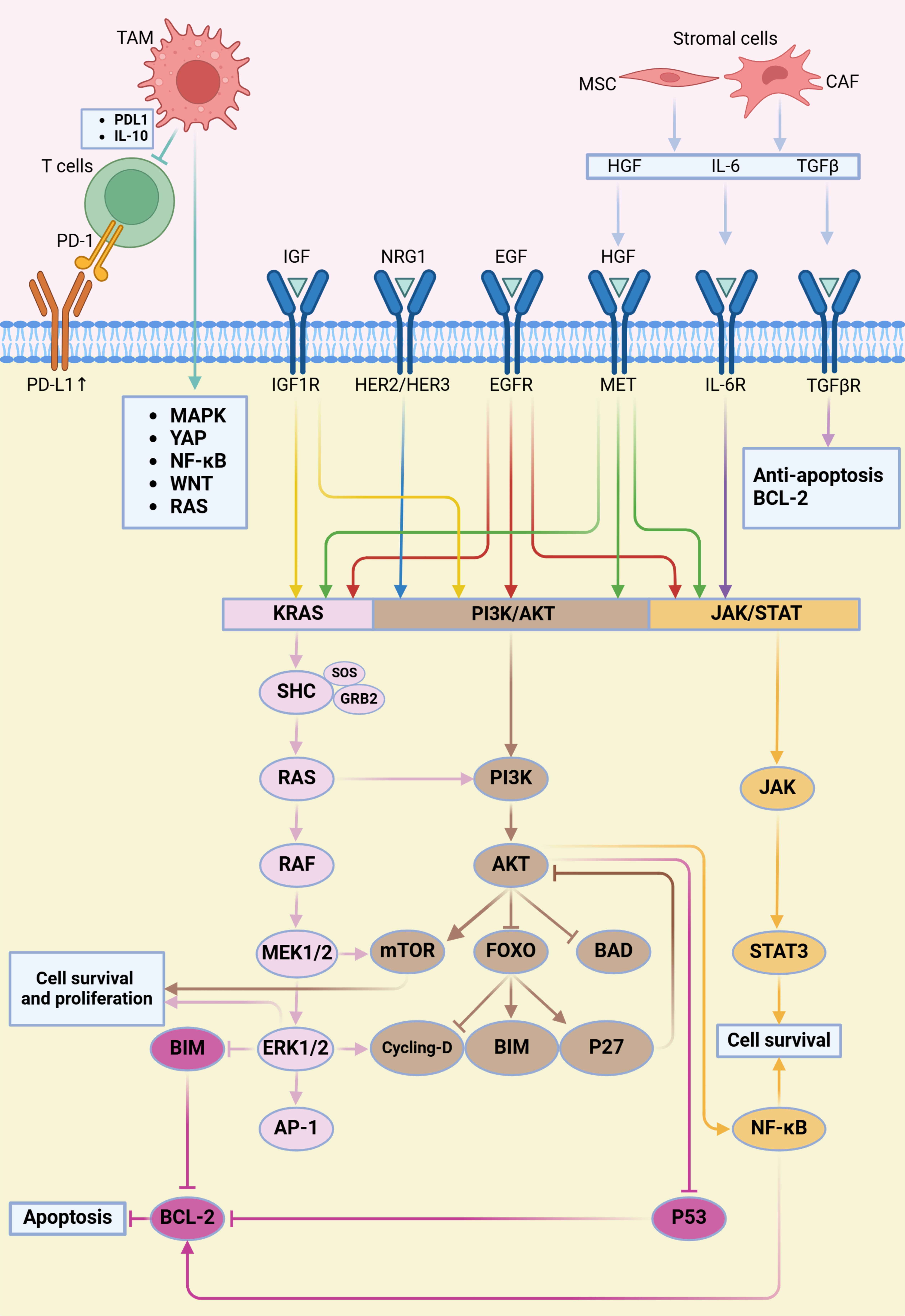fig2
Figure 2. ALK-TKI resistance mediated by the tumor microenvironment and bypass signaling activation. This figure illustrates how the tumor microenvironment promotes resistance to ALK-TKIs through activation of bypass signaling pathways. Stromal components such as CAFs and MSCs secrete cytokines and growth factors including IL-6, TGFβ, and HGF. Together with ligands such as IGF, NRG1, and EGF, these molecules activate corresponding receptors on tumor cells. Receptor activation triggers downstream signaling pathways including RAS–RAF–MEK–ERK, PI3K–AKT, and JAK–STAT, ultimately enhancing cell survival and inhibiting apoptosis through mediators such as BCL-2 and NF-κB. This process reduces the effectiveness of ALK inhibitors. Additionally, TAMs contribute to immune evasion by secreting IL-10 and inducing PD-L1 expression on tumor cells, thereby suppressing T cell-mediated antitumor immunity. Both TAMs and T cells further modulate oncogenic signaling by releasing factors that activate the MAPK, YAP1, NF-κB, WNT, and RAS pathways. Created in BioRender. Long, M. (2025). https://BioRender.com/4cy0tmf. ALK-TKI: Anaplastic lymphoma kinase tyrosine kinase inhibitor; CAFs: cancer-associated fibroblasts; MSCs: mesenchymal stem cells; PI3K: phosphatidylinositol 3-kinase; JAK: Janus kinase; STAT: signal transducer and activator of transcription; NF-κB: nuclear factor-κB; TAMs: tumor-associated macrophages; PD-L1: programmed death ligand 1; YAP1: Hippo-Yes-associated protein 1.












